P.E.I. birders need to learn new names as ornithological society makes big change
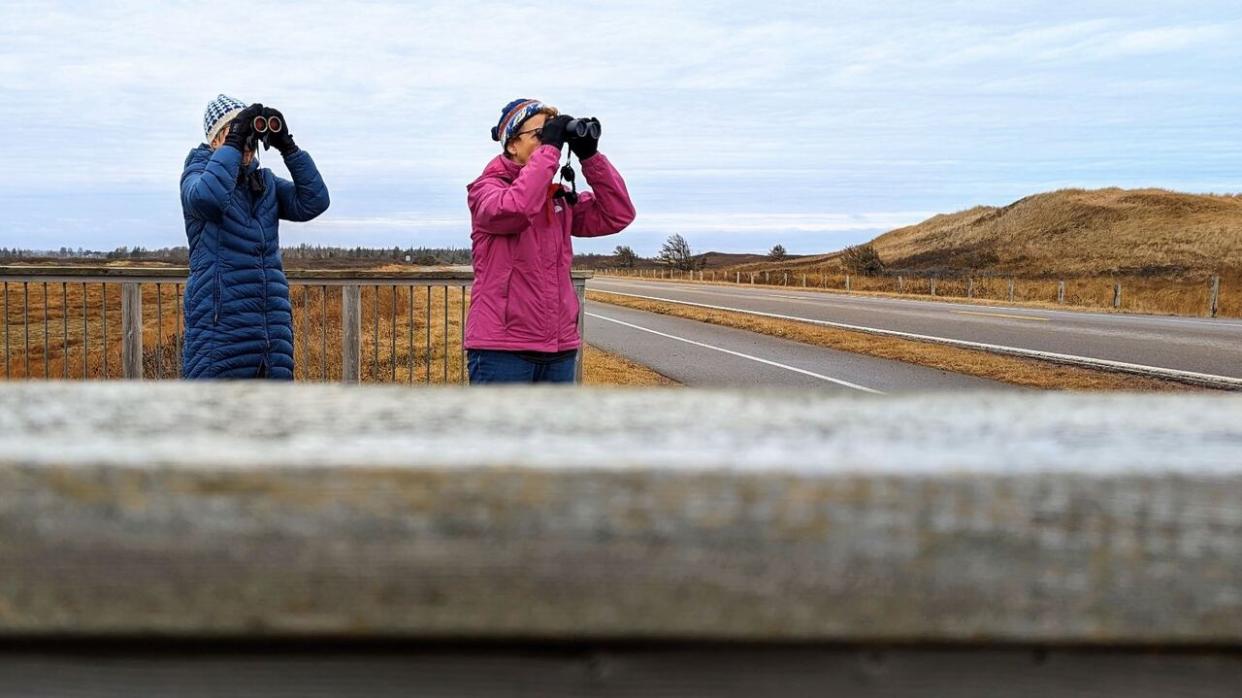
Birders on Prince Edward Island will be learning some new names in 2024, after the American Ornithological Society announced it is renaming all birds in the United States and Canada that were named after people.
The decision by the world's largest professional organization for ornithologists will affect as many as 80 species, including about 25 that have been spotted on Prince Edward Island.
Some birds named after people "have associations with the past that continue to be exclusionary and harmful today," according to the society.
"The idea is largely to make the situation more accessible for birders, and also to remove any names that are considered offensive for certain sectors of the birding community," said Kathy Martin, a professor of wildlife ecology at the University of British Columbia.
Martin grew up in Stanhope, P.E.I., and is a long-time member and a former president of the American Ornithological Society.
She said some of the species on P.E.I. that will have their names changed include Ross's gull, Swainson's thrush, Cooper's hawk, Swainson's hawk, Wilson's warbler and Wilson's phalaropes.
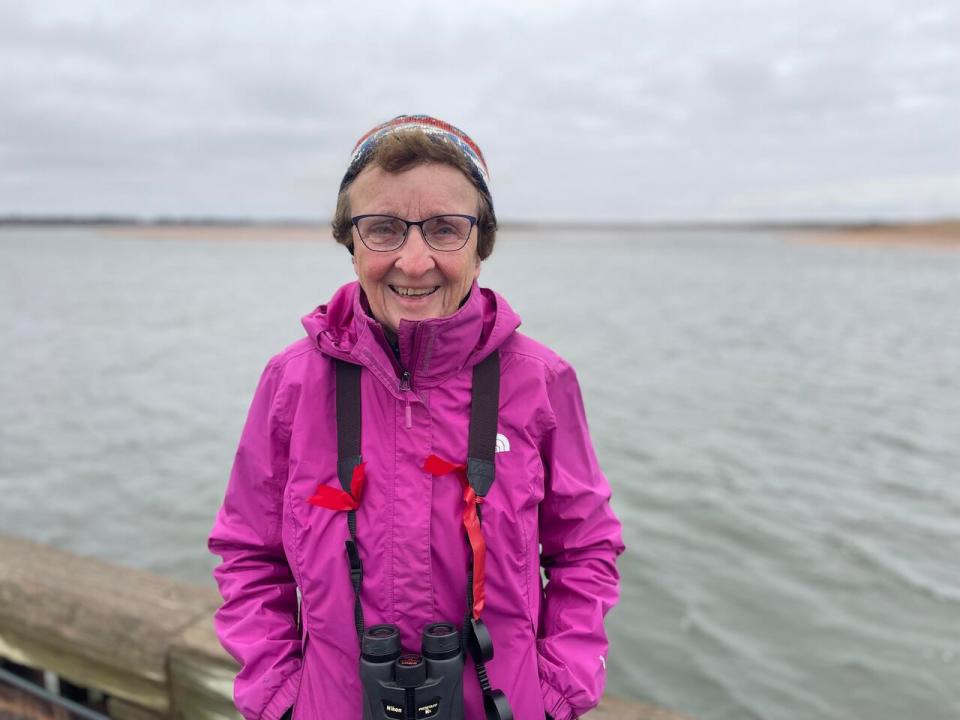
'Some of these birds were named after people as an honour because they made a lot of contributions to ornithology,' notes Kathy Martin, who grew up in Stanhope, P.E.I., and is a former president of the American Ornithological Society. (Nancy Russell/CBC)
She said the decision to rename the species has annoyed some in the birding community.
"But I think every time names are changed, it ruffles somebody's feathers," Martin said.
"There's always opposition to change, and there's also some opposition because some people feel that it's removing history, because some of these birds were named after people as an honour because they made a lot of contributions to ornithology."
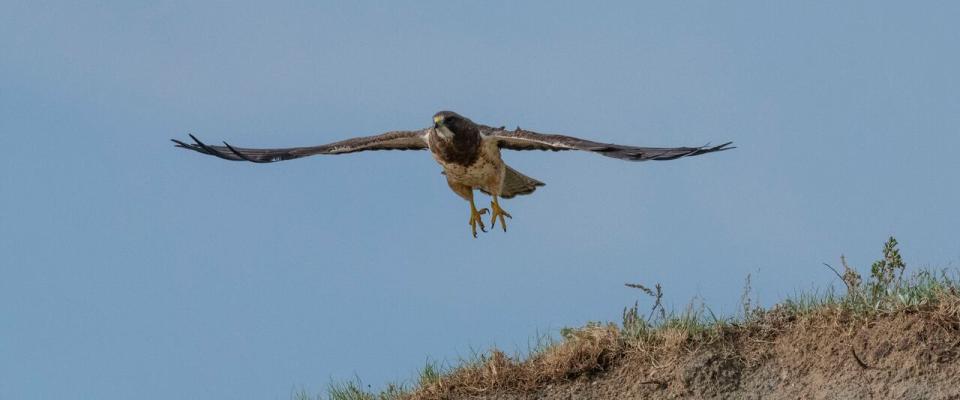
Swainson’s hawks nest across the western United States and Canada, according to the University of Minnesota. (Jason Bantle/Nature Conservancy of Canada)
People will still be using the old names out of habit for a while, Martin thinks.
"They say when you change a name, it takes about 20 years to get it into the common language. I think this will go much faster because the idea of changing the names will be to something that's more descriptive."
The idea is to celebrate the changes, with the idea of getting people to get more interested in birds and biodiversity and conservation of wildlife.
— Kathy Martin
One example she gives is Wilson's warbler.
"It's a beautiful little warbler, with a yellow breast and black head. [It] might be renamed something like the black cap warbler or the black-headed warbler, which if you're new to birding, it'll be a lot easier to remember."
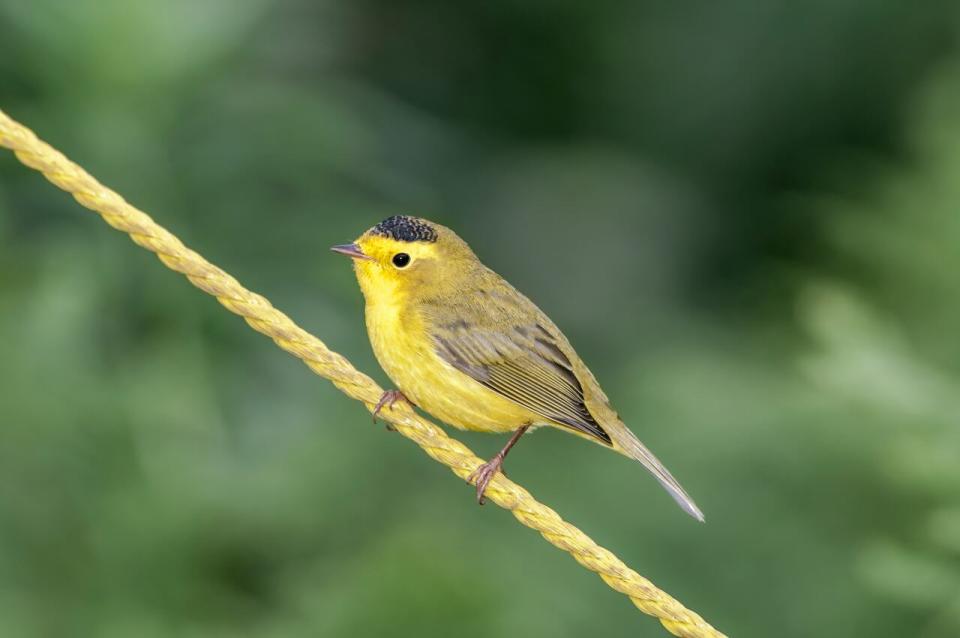
Martin says Wilson's warbler may be renamed something like the black cap warbler or the black-headed warbler. (Shutterstock/Nick Pecker)
Another example she cites is Swainson's thrush, which has a beautiful song and could thus be renamed something like the melodious thrush.
"This is not going to happen very quickly as well, because they want to put a lot of thought into what would be appropriate names. You have to make sure it's not going to conflict with names of other birds."
Public involvement
Martin said there will be consultation and public involvement in coming up with new names.
"There will be a team that will be in charge of renaming," she said.
"The idea is to celebrate the changes, with the idea of getting people to get more interested in birds and biodiversity and conservation of wildlife."
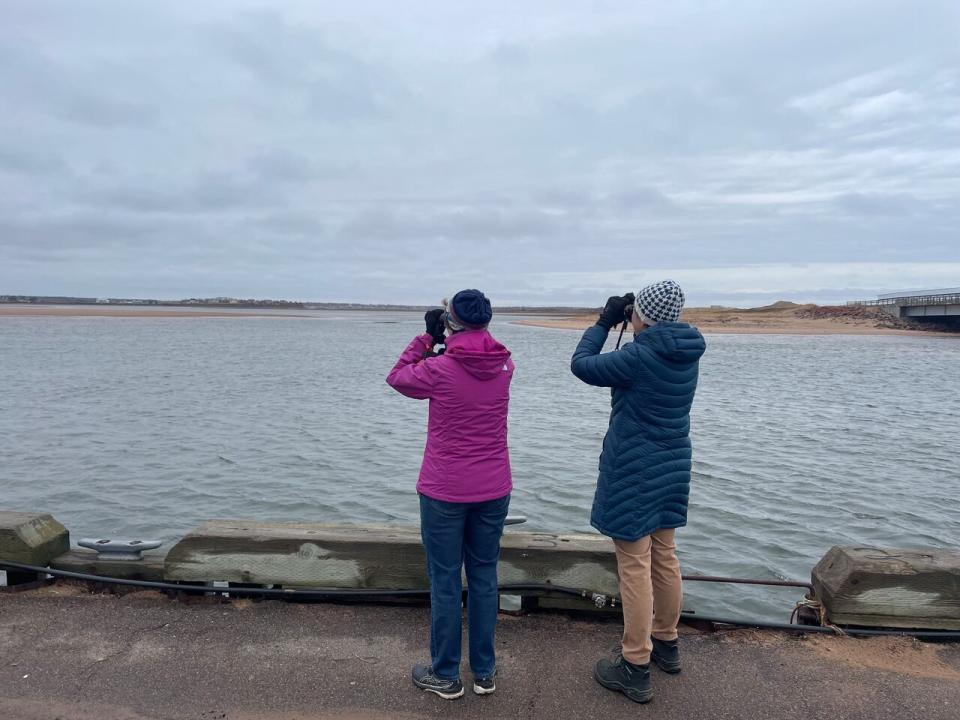
Kathy Martin and Kate Gordon observe sea birds at P.E.I. National Park. (Nancy Russell/CBC)
Martin said the issue of bird conservation is particularly important "because the birds are declining at a pretty alarming rate, especially some species. And even the ones that are not on the endangered species list, many of them, the distribution is shrinking.
"When you have birds distributed over a smaller area, that's always a cause for concern."
Martin said the renaming process is not entirely new, as the Cornell Lab of Ornithology releases name changes every year, for a variety of reasons.
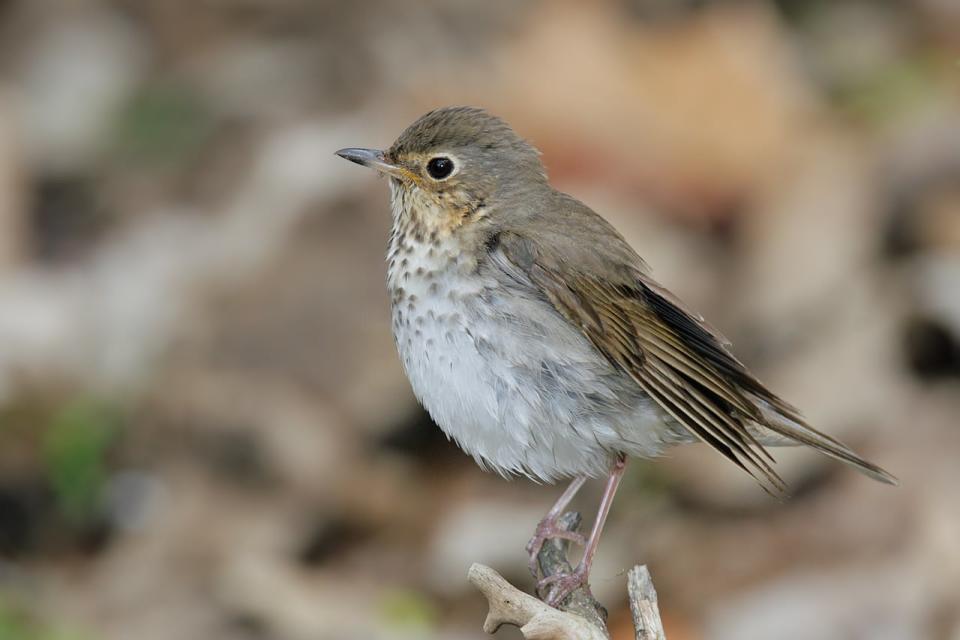
Swainson's thrush will get a new name in 2024. (Jeff Nadler/Boreal Birds Need Half)
She said some birds have been previously renamed because of cultural insensitivity, including the long-tailed duck, a sea duck seen on Prince Edward Island, which used to have a name that was derogatory toward First Nations.
She said similar name changes have been happening in plants, fish, insects and mammals.
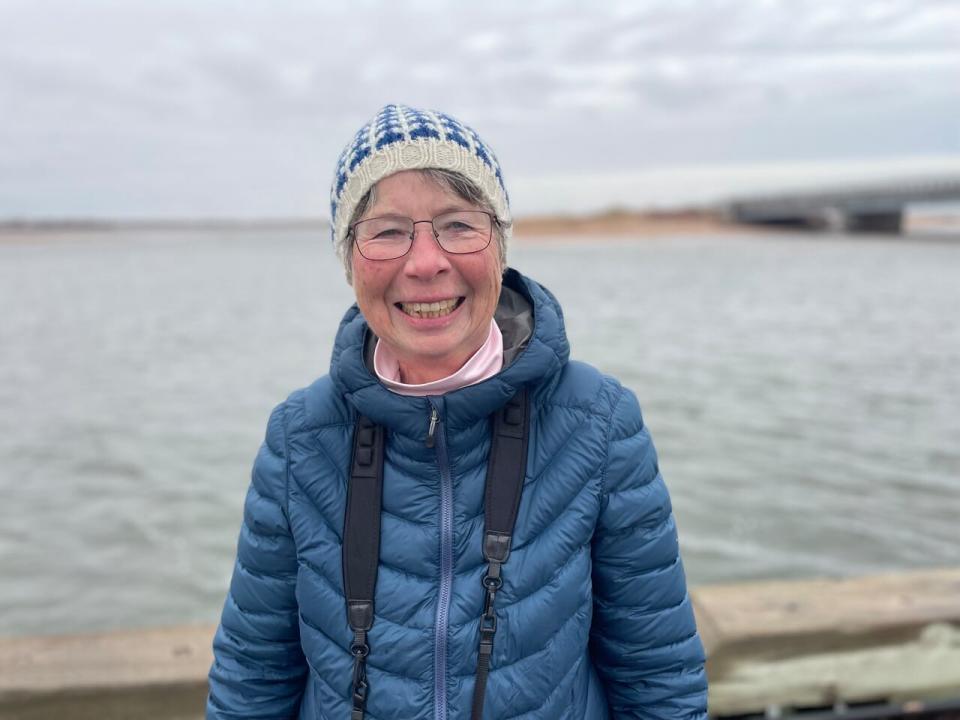
'I'm fine with relearning a few names,' says Kate Gordon, an Island birder since 2017. (Nancy Russell/CBC)
Kate Gordon started birding in 2017, when she moved to Prince Edward Island, and has been involved in the annual Christmas Bird Count ever since.
"I'm fine with relearning a few names, and if the American Ornithological Society wants to rename things, I'm fine with that too," she said.
"That's their prerogative and and I agree with some of their rationale," Gordon said, listing in particular "the idea that it makes it more accessible to people, that it's easier to look for a bird and know what it is if you have a descriptive name for it."

